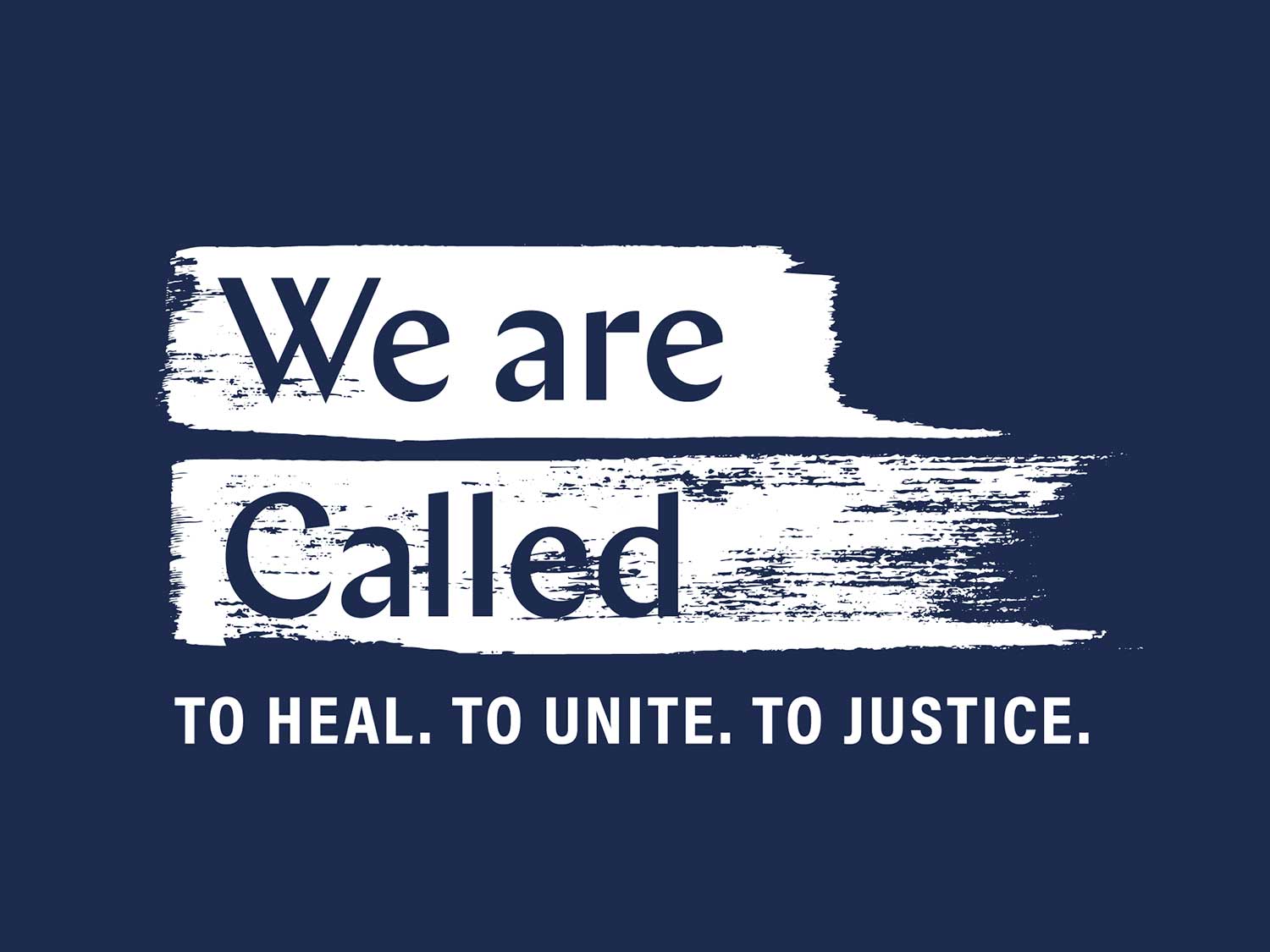The Confronting Racism initiative seeks to bring the Catholic health ministry together to take focused, effective action to root out racism by achieving health equity. Health disparities and systemic racism have been debated and analyzed for decades. A wealth of resources exists analyzing the problem and possible solutions. Now is the time to act and be accountable for our efforts. Here are some resources that your organization can use to assess and strengthen your equity efforts, internally and in your communities.
.jpg?sfvrsn=f9d854d3_1)
We Are Called Prayer Cards
Containing the same prayer but with different imagery, as a brandable version, and in Spanish, these prayer cards are available for electronic download for use in newsletters, virtual events, social media and on facility monitors as well as hardcopy ordering.
.jpg?sfvrsn=29294c48_1)
Reflection on Equity Prayer Card
This prayer card cites the story of Lazarus on the frontside and accompanying reflection thoughts as well as a prayer on the backside. Useful as a resource for meetings, and something you can share in break rooms and staff gathering areas, it is available for order in hardcopy – with free ground shipping in the United States. Excerpt: Jesus told the parable of the rich man and Lazarus to draw attention to the great chasm that exists between persons who are poor and vulnerable and the powerful who are indifferent to their suffering. As part of Jesus’ healing mission, we are called to promote justice, and to end the disparities that exist in our day and time. Jesus calls us to be aware of the chasm in health care. He calls us to end our indifference to the person before us who is in need. He calls us to act for justice and to bring comfort and healing to those who are not sitting at the table today. And He calls us to advocate for the poor and to promote and defend human dignity.
.jpg?sfvrsn=310370b8_2)
A Health Progress Diversity and Health Equity Discussion Guide
Catholic health care considers its commitment to promote and defend human dignity foundational to the work we do. In 2020, CHA launched “We Are Called” to confront racism and achieve health equity. This discussion guide was created, at the suggestion of Health Progress’ advisory council, to provide a means in often busy Catholic health care settings to learn, discuss and consider ways to move toward greater understanding of one another and patients and how to work together for improved diversity, equity and inclusion in the work of the ministry. As A Shared Statement of Identity highlights, “our ministry is an enduring sign of health care rooted in our belief that every person is a treasure, every life a sacred gift, every human being a unity of body, mind, and spirit.”
Systemic Racism: Understanding the Past to Change the Present
We Are Called to educate ourselves on the roots of systemic racism and its connection to health disparities today. Here are some recommended resources for associates, executives and boards.
The Intersection - Where Anti-Racism and Healthcare Meet
Convened by the Robert Wood Johnson Foundation, The Intersection brings people together to share resources, inspiration, and ideas to improve healthcare for all.
Videos
- The Tuskegee Study – Black History in Two Minutes
- Is Racism Making People Sick? – Glad You Asked
- Allegories on Race and Racism with Camara Jones – TEDxEmory
- Does My Neighborhood Determine My Future? – Glad You Asked
- Freedman’s Bank – Black History in Two Minutes
- Bryan Stevenson Wants Us to Talk More About Slavery – Equal Justice Initiative
- Reconstruction – The Vote – Black History in Two Minutes
- Reconstruction in America – Equal Justice Initiative
Documents
Books
Also Recommended
Film Viewing of "Toxic: A Black Woman's Story," followed by a Panel Discussion
A 20-minute film, "Toxic; A Black Woman's Story," which shows a "day in the life" of a Black woman as she navigates the myriad stressors of a typical day and their effect on her pregnancy and her family.
View the webinar recording (CHA members only)
Season 3: Episode 6 - Health Care Ethics and Artificial Intelligence
Artificial Intelligence is changing the world with every passing day, especially in the health care industry. But are we correct to trust that machine learning can effectively do the work needed and will A.I. prevent harm or perpetuate it?
CHA Senior Director of Public Policy Kathy Curran and Michael Miller, System Vice President of Mission and Ethics at SSM Health, discuss ethical concerns that arise from AI use, including complex power dynamics, data privacy and how computers can contribute to systemic racism and inequity.
Season 3: Episode 11 - Leadership Equity and Community Health
Equity in the work force is a goal many institutions strive to accomplish, but is it possible without also addressing equity at the decision-making level? How does prioritizing board-level equity change the trajectory of an organization?
Julie Trocchio, CHA’s Senior Director of Community Benefit and Continuing Care, and Dora Barilla, Director and Co-Founder of HC2 Strategies, join the show to discuss the following: Barilla’s work with the University of Providence, including the Community Health Investment Certificate program; prioritizing equity at the same level as patient safety; and how community health is impacted by diverse workforces.

